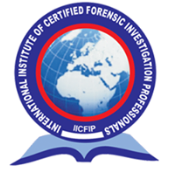University Issuing Certificate
Saint Monica University, Buae, Cameroon.
Accredited Tuition Centre for Forensic Investigation Professional in Tanzania by international institute of certified forensic investigation professionals Inc
Introduction:
MSc. FACI
These programmes above are designed to provide progressive, challenging and stimulating framework of studies that will equip you with knowledge and skills required in these fields. With the corporate financial scandals of the 1990s and the economic crisis that looms today, our traditional auditors may be the direct answers to these problems of fraud. However, forensic accountants are becoming more and more vital for ensuring that financial transactions are done legally and ethically. Thus, forensic accounting and fraud investigation is one of the fastest growing areas of accounting, and there is an increasing global demand for specialists with forensic accounting knowledge and skills.
REQUIREMENTS & THE BENEFITS OF THIS PROGRAMME
• Bachelor’s degree in a relevant field with minimum CGPA of 2.50 or equivalent as acceptable by the Senate; OR
• Bachelor’s degree or equivalent in a relevant field but for CGPA below 2.50; can be accepted provided that the candidates must have 5 years working experience in relevant field.
• Graduates of equivalent qualifications who have several years of relevant industry experience.
• Evidence of satisfactory English language skills is required for candidates (SSCE/WAEC/NECO)d based on local requirement. Candidates are also required to submit CVs along with application for proper evaluations.
• Demonstrate an advanced understanding of the concepts, principles of forensic accounting theory, familiar with the legal framework of forensic accounting services and understand the roles and responsibilities of the forensic accountant.
• Recognize and appropriately respond to ethical issues in the practice of accounting by incorporating appropriate professional codes of conduct and social responsibility.
• Conduct successful investigations and communicate effectively in writing and orally both in and out of the courtroom with respect to a variety of criminal and civil financial matters.
• Develop a mindset of professional scepticism, using critical thinking and creative approaches to complex problem solving.
• Gather and analyze quantitative and non-quantitative evidence, plan and conduct a research project in a professional and ethical manner which requires familiarity with a range of data, research sources and appropriate methodologies.
• Create, evaluate and assess a range of options together with developing the capacity to apply ideas and knowledge to a range of situations.




